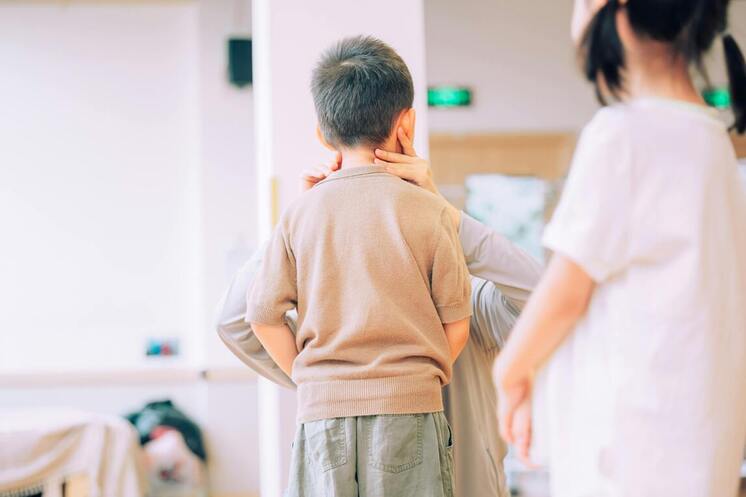
By Dr. Srihari Singaravel
Dr. Srihari Singaravel is a senior consultant in paediatric urology at UM Specialist Centre (UMSC), Kuala Lumpur.

The journey of parenthood is an adventure rife with joy, discovery, and the occasional bump in the road such as concerns about our children’s health.
Understandably, these newfound worries can become overwhelming. “What does this mean?”, “How is this going to affect my child?” and “What should we do?” are questions that I often hear in my office as parents grapple with a sense of helplessness, confusion and frustration stemming from the natural instinct to protect our children and to be there for them.
Adding another bump to this already difficult journey are instances where our children might actually require surgical intervention. To these parents, I hear your concerns, and I hope I can help alleviate them.
Paediatric urologists such as myself are trained to address any concerns related to the urinary system of children. A big part of what we do is interpret problems and feelings of unease or discomfort that may not be easily expressed by children. Reading a child’s mind is not easy – I know this as a parent.
When it comes to genito-urinary issues in children, we see and understand the nuances that are often missed or misinterpreted. We are also the best equipped to decipher these subtle symptoms that often present differently in children and provide insightful answers that make the most of your visit.
Office ultrasonography and video urodynamics have made it possible to gather as much information as possible in a single consultation.
While general practitioners (GPs) play a crucial role as primary healthcare providers, paediatric urinary conditions require additional specialised expertise to be treated effectively.
A simple case of lower Urinary Tract Infection (UTI) could be resolved by a GP, but recurrent episodes or a single bout of upper UTI (Pyelonephritis: infection in the kidneys), especially in an infant, would warrant a prompt visit to a paediatric urologist.
A UTI occurs when bacteria enter the urinary tract, causing an infection which varies in its severity. It is a common condition as about 7% of girls and 2% of boys under the age of six will have symptomatic UTI, confirmed by urine culture.
Older children with UTI commonly have lower urinary tract symptoms (LUTS) such as a frequent need to urinate, urgency, painful urination, and an uncharacteristic change in their toilet habits such as holding in their pee deliberately. Daytime urinary symptoms can often accompany bedwetting, which is urination that happens during sleep.
Recurrent UTIs in children can be an indicator of some other underlying issue. A urinalysis and urine culture may be performed along with in-office ultrasonography to expeditiously identify the root cause of the UTIs.
A paediatric urologist may further investigate any findings to rule out conditions such as structural abnormalities or blockages in the urinary system.
Depending on the underlying cause, tailored treatment is required, involving a combination of antibiotics, periodic follow-up evaluations to assess lifestyle modifications to help reduce the risk of recurrence, and rarely in some children, surgical correction.
A major chunk of the surgeries I perform is correcting a congenital condition known as hypospadias. This is a birth defect affecting male genitalia in which the opening of the urinary passage is not located at the tip of the penis as it normally should be. It is the most common congenital penile and urethral condition – by some estimates, hypospadias can affect as many as 1 in 125 male births.
Depending on where the urethral opening is, hypospadias can cause problems such as spraying during urination which makes it compulsory to sit to urinate.
There is a window between 6 and 18 months of age when the psychological and emotional consequences of genital surgery are minimal.
Early detection, followed by timely surgical correction, not only addresses the immediate challenges posed by hypospadias but also prevents the development of more complex issues that may arise in adolescence and adulthood, affecting sexual function or causing poor self-esteem.
While the initial feeling of apprehension about surgery for your child is understandable, engaging in an open and thorough discussion with your paediatric urologist can help you weigh the risks and benefits involved through a better understanding of the condition.
Another common form of urinary incontinence is bedwetting. You might encounter one of these two scenarios:
- Your 9-year-old boy is still bedwetting. You have tried some methods to manage it, including waking up at 1 am to tell him to go pee, but nothing seems to be working so far.
- For the past two months, your 13-year-old daughter, who usually does not have trouble with bedwetting, has been unable to control her urination during the day or night. She needs to use the toilet often and sometimes she feels like she hasn’t emptied her bladder fully.
These are examples of primary and secondary bedwetting. Primary bedwetting is when a child older than five years of age, who has never been consistently dry at night for a period of 6 months, continues to pass urine while asleep.
On the other hand, secondary bedwetting is when a slightly older child who previously had control suddenly starts to experience bedwetting. The distinction between these two types of bedwetting is very important and offers insight into the treatment.
An important thing to note in these two scenarios is the age of the children. Parents often grapple with concerns about the age at which children should outgrow bedwetting.
Incontinence in a child may be defined as leakage of urine at an inappropriate time or place after 5 years of age, while bedwetting beyond the age of seven warrants further investigation.
Some parents may not know what to do about bedwetting and seek advice from other parents instead of talking to a specialist. However, a paediatric urologist would check for underlying problems and offer long-term, goal-oriented solutions.
On that note, you might be wondering when you should visit a specialist. Here are some scenarios that would require consultation with a paediatric urologist:
- A prenatal or antenatal scan shows swollen kidneys
- Your newborn child’s penis looks abnormal or a testis is missing
- Your child is still wetting the bed and you do not know what to do
- You’re being told that your child needs a circumcision, and you do not know what to do
- You have seen a lot of people but still do not have an answer to your child’s problem
When your child faces a urinary concern, entrusting their care to a paediatric urologist would be prudent, given our unique level of specialisation.
To qualify as a paediatric urologist, we have to first undergo extensive training in either paediatric surgery or adult urology, followed by at least two or three years of sub-specialisation focused solely on paediatric urology. This rigorous process ensures that we have the deepest understanding of children’s urinary systems, allowing us to precisely diagnose and treat these conditions.
In short, you would be choosing a doctor who has made caring for your child’s specific needs their sole focus of practice, ensuring that they receive the most effective and specialised care available.
That being said, we not only ensure the best outcome for your child’s well-being, but we also provide parents with support and clarity in such challenging times.
As we have explored these common urological conditions in children, it is clear that the journey to understanding and managing these particular challenges can be very daunting for first-time parents.
However, with a proactive mindset, you can make well-informed choices by speaking to a specialist and arming yourself with the right information thus ensuring the best possible outcome for your child.
* The views expressed herein are strictly the personal opinion of the writer and do not necessarily represent the views of YamCha Time.







